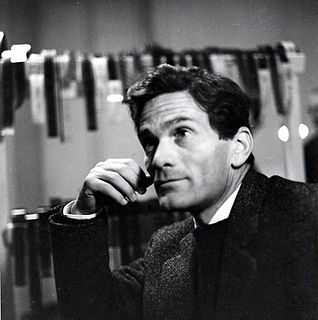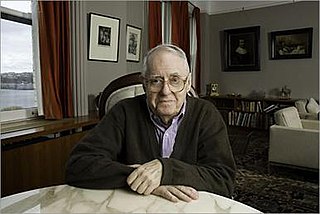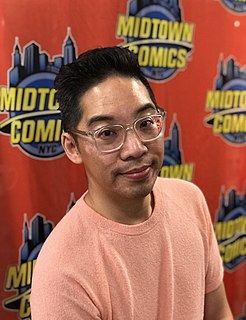A Quote by Dylan Thomas
No honest writer today can possibly avoid being influenced by Freud through his pioneering work into the Unconscious and by the influence of those discoveries on the scientific, philosophic, and artistic work of his contemporaries: but not, by any means, necessarily through Freud's own writing.
Related Quotes
The idea that boys want to sleep with their mothers strikes most men as the silliest thing they have ever heard. Obviously, it did not seem so to Freud, who wrote that as a boy he once had an erotic reaction to watching his mother dressing. But Freud had a wet-nurse, and may not have experienced the early intimacy that would have tipped off his perceptual system that Mrs. Freud was his mother. The Westermarck theory has out-Freuded Freud.
While people argue with one another about the specifics of Freud's work and blame him for the prejudices of his time, they overlook the fundamental truth of his writing, his grand humility: that we frequently do not know our own motivations in life and are prisoners to what we cannot understand. We can recognize only a small fragment of our own, and an even smaller fragment of anyone else's, impetus.
It has been said that I have three heroes: Christ, Marx and Freud. This is reducing everything to formulae. In truth, my only hero is Reality. If I have chosen to be a filmmaker as well as a writer it is because, rather than expressing reality through those symbols that are words, I have preferred the cinema as a means of expression - to express reality through reality.
A child in his earliest years, when he is only two or a little more, is capable of tremendous achievements simply through his unconscious power of absorption, though he is himself still immobile. After the age of three he is able to acquire a great number of concepts through his own efforts in exploring his surroundings. In this period he lays hold of things through his own activity and assimilates them into his mind.
Mythologies were the earliest dreams of mankind, and in the psychotic delusions of his patients, Jung believed he was encountering those dreams again. Freud, too, believed that the psyche retained archaic vestiges, remnants of our earlier mental world. But for Freud these were a burden we were forced to repress. Jung instead would see them as a reservoir of vital energy, a source of meaning and power from which, through the over-development of our rational minds, modern mankind has become divorced.
In using all means, seek God alone. In and through every outward thing, look only to the power of His Spirit, and the merits of His Son. Beware you do not get stuck in the work itself; if you do, it is all lost labor. Nothing short of God can satisfy your soul. Therefore, fix on Him in all, through all, and above all...Remember also to use all means as means-as ordained, not for their own sake.
Freud, Jung thought, had been a great discoverer of facts about the mind, but far too inclined to leave the solid ground of "critical reason and common sense." Freud for his part criticized Jung for being gullible about occult phenomena and infatuated with Oriental religions; he viewed with sardonic and unmitigated skepticism Jung's defense of religious feelings as an integral element in mental health. For Freud, religion was a psychological need projected onto culture, the child's feeling of helplessness surviving in adults, to be analyzed rather than admired.







































